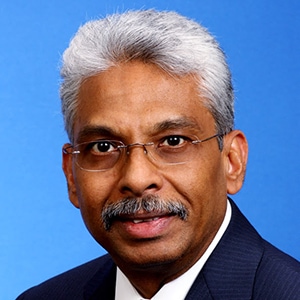Tapodyuti Bose, global head of Channels and Enterprise Services, Citi Treasury and Trade Solutions, explains the importance of removing friction with open banking.
 |
Global Finance: Why should banks be looking beyond compliance with regards to their digital efforts?
Tapodyuti Bose: Compliance is an important driver for the digitization and transformation of treasury. However, in the hyperconnected world our clients operate in, providing a globally consistent client experience can be just as important. With this in mind, we are creating agile, yet robust solutions for our clients that ensure the best possible service in a safe and secure way. We have witnessed and participated in many such industry efforts, including UPI in India. Open banking is a logical evolution of recent efforts across the industry to reduce friction in banking. Much of the compliance originated from laws designed to remove many of the local barriers, as well as create a much larger footprint where solutions can be offered. Given Citi’s heritage and global presence, we are very focused on offering not only the best possible open banking experience, but also one that is consistent and efficient across all markets where Citi supports open banking services.
GF: How important is a collaborative ecosystem to the development of client solutions?
Bose: We see our role as a leader not only in bringing innovative solutions to our clients across industries and regions, but also in helping them to uncover new opportunities in their value chains—especially with the emergence of the new financial ecosystem. It is paramount for Citi to innovate together with clients. Through cocreation we bring focus and the right level of prioritization to our design process. Banking and financial services are not mysterious concepts. Historically, however, the barriers for our clients to integrate with their banking partners have been too high. Open banking initiatives and the adoption of new technologies, such as APIs [application programming interfaces] and AI [artificial intelligence], help us remove that friction, create customer delight and leverage insights to develop solutions for the future.
GF: How can open banking help create value-added services for corporate customers, and how can banks turn these into profit?
Bose: Open banking as a concept is still in its infancy, but we expect great innovation with many such services currently being implemented. These include predictive payment analytics to detect anomalies, making transacting more secure; pay-later options for instant payments; validation and verification services to ensure successful payments prior to transacting; and help for clients to verify trading partners and customers during the enrollment process. These are just a few items, with many more to come. We anticipate that a number of these services will generate new sources of income for banks.
GF: What tools help banks integrate with client value chains, and how can this help banks create superior services?
Bose: At Citi, we are continuously thinking of ways we can improve the end-to-end client experience. We have adopted agile processes and are working with and validating new technologies, together with harnessing the power of data to inform our strategy. Innovation is a collaborative and iterative process, and our clients play a big role. We work with our clients extensively during the product-development process and constantly incorporate their feedback into our final design. Solution-design thinking ensures we deliver services and capabilities that help address challenges and pain points. We have launched a variety of new, innovative solutions that include our testing-transformation portal to enable a client to be fully self-sufficient. Through this service, clients can principally complete the integration process without assistance from our technical experts. Other examples include Citi’s support for MyStandards; and our API Developer Portal, which includes a sandbox to help clients test their API calls independently from Citi implementation managers.
GF: What technologies promise the most benefits for corporate customers and in what areas of their daily business?
Bose: During Citi’s most recent treasury-diagnostics survey, clients listed the following three items as the biggest drivers of treasury transformational change: 1) automating processes, 2) cash visibility and 3) cash-flow forecasts. The survey also found that the biggest hurdles for clients in achieving this desired transformation were the integration of technologies and associated costs. API, powered by AI and driven by instant payments, is the most effective and impactful technology to help overcome these hurdles and help corporate clients achieve their objectives. Through partnerships with leading providers of treasury-software solutions and industry-leading fintech companies, Citi is able to create and deliver customized solutions that help streamline and optimize treasury operations.



